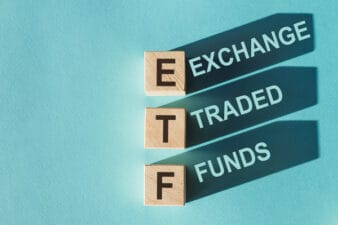In fewer than 10 trading sessions between January 29 and February 9 of this year, the S&P 500 shed more than 10% of its value. That means, generally speaking, if you’d held $10,000 in the markets, you would have parted with a cool $1,000 in fewer than two weeks — without having anything to show for it, mind you.
Granted, that’s nothing compared to what we saw back in 2008-09 when the market lost half of its value over a few short months.
Do you want to stop this happening to you next time the market sells off?
Try following these three tips.
Be willing to pay for quality
Typically, the market goes through cycles that can be categorized as “risk-on” and “risk-off” modes.
This is a simple way of saying that when there’s danger or threats looming over the markets, the “risk is on,” and you’re better off heading for the hills and avoiding the “bears” along the way.
When the market is in risk-on mode, stocks that are perceived to be riskier — for example, if they are facing secular threats to their business models, as Corus Entertainment Inc. (TSX:CJR.B) is today, or if a stock has a higher price-to-earnings multiple (P/E multiple), like Shopify Inc. (TSX:SHOP)(NYSE:SHOP) — get hit the hardest.
Meanwhile, higher-quality names such as Royal Bank of Canada (TSX:RY)(NYSE:RY) or Suncor Energy Inc. (TSX:SU)(NYSE:SU) tend to fare better in these types of environments.
So, don’t be afraid to pay up for quality today, even if it feels like you don’t need to.
Dividend-paying stocks will outperform those that don’t pay dividends
The world’s most famous investor, Warren Buffett, once equated buying a stock that doesn’t pay a dividend to playing a game of musical chairs. If you’re not buying companies that pay dividends on a regular basis, you’re simply hoping that you have a place to park yourself when the music stops playing.
Even companies that pay only a modest dividend — for example, Equitable Group Inc. (TSX:EQB), which yields shareholders 1.92% — should outperform those that don’t — Home Capital Group Inc. (TSX:HCG), which is, ironically, a holding of Buffett’s — should fear or panic set in on the markets.
Hedge your bets
Strategies to pay up for quality or invest in dividend-paying stocks may help you mitigate your losses should the market crumble. But they won’t help you make any money, either.
Advanced-level investors may want to consult a financial advisor to explore alternative investing strategies, including selling stock short or using derivatives, as risk-management strategies to hopefully offset losses incurred in other segments of their portfolios.
For example, using a “protective put” strategy in combination with a stock you own is akin to buying an insurance contract on your investment and may prove to be a wise move should your investment suffer declines in the market.








